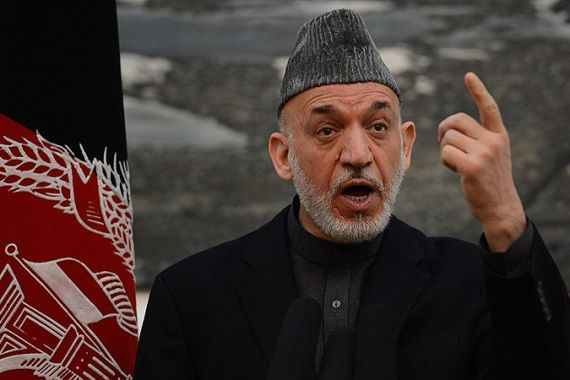UN says Afghan prisoners still being tortured
Forms of abuse included hanging prisoners by their wrists and beating them with cables, a new report says.

Afghan authorities were still torturing prisoners, such as hanging them by their wrists and beating them with cables, according to a UN report.
More than half of the 635 detainees interviewed had been tortured, according to the report titled Treatment of Conflict-Related Detainees in Afghan Custody: One Year On, released on Sunday.
The figure is higher than the UN found in its first report in 2011, when 24 percent of transferred detainees were tortured.
In multiple detention centres, Afghan authorities leave detainees hanging from the ceiling by their wrists, beat them with cables and wooden sticks, administer electric shocks, twist their genitals and threaten to shove bottles up their anuses or to kill them, the report said.
|
“Torture cannot be addressed by training, inspections and directives alone.” – Georgette Gagnon, the head of human rights for the UN mission in Afghanistan |
The report shows little progress in curbing abuse in Afghan prisons despite the Afghan government’s promise of prison reform.
It also cites instances where Afghan authorities have tried to hide mistreatment from UN monitors.
After the last year’s report, the NATO military alliance temporarily stopped transferring Afghans it had picked up to national authorities until they could set up a system free of abuse.
Though it said the findings were exaggerated, the Afghan government promised after the first report to increase monitoring, but little appears to have changed.
Once NATO forces resumed the transfers and decreased inspections, torture quickly returned to earlier levels, the report said.
‘Allegations untrue’
The report documents what it called a “persistent lack of accountability for perpetrators of torture”, noting that no one has been prosecuted for prisoner abuse since the first report was released.
Aimal Faizi, a spokesman for the Afghan president, said torture and abuse of prisoners was not Afghan policy.
“However, there may be certain cases of abuse and we have begun to investigate these cases mentioned in the UN report,” he said.
“We will take actions accordingly.”
In a letter responding to the latest report, the Afghan government said that its internal monitoring committee found that “the allegations of torture of detainees were untrue and thus disproved”.
The Afghan government said that it would not completely rule out the possibility of torture at its detention facilities, but that it was nowhere near the levels described in the report and that it was checking on reports of abuse.
The findings highlight the type of human rights abuses that many activists worry could become more prevalent in Afghanistan as international forces pull out in next couple of years.
One detainee in the western province of Farah told the UN team: “They laid me on the ground. One of them sat on my feet and another one sat on my head, and the third one took a pipe and started beating me with it.
They were beating me for some time like one hour and were frequently telling me that, ‘You are with Taliban and this is what you deserve.'”
It’s troubling given the amount of international attention and pledges of reform that came after the first report.
“Torture cannot be addressed by training, inspections and directives alone,” said Georgette Gagnon, the head of human rights for the UN mission in Afghanistan, explaining that there has been little follow-through by the Afghan government.
In a letter responding to the UN report, General John Allen, the commander of US and NATO forces in Afghanistan, said that his staff had written letters to Afghan ministers urging them to investigate more than 80 separate allegations of detainee abuse during the past 18 months.
“To date, Afghan officials have acted in only one instance,” Allen said in the letter.